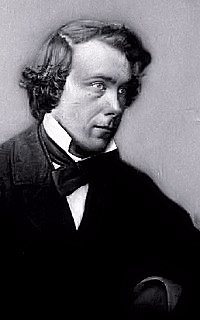Introduction

Born: May 5, 1830, Douglas, Isle of Man.
Died: October 29, 1897, Clifton College, Bristol, while addressing students there on the theme of The Ideal Clifton.

Born: May 5, 1830, Douglas, Isle of Man.
Died: October 29, 1897, Clifton College, Bristol, while addressing students there on the theme of The Ideal Clifton.
Sixth of ten children, Brown was the son of Robert Brown, incumbent of St. Matthew’s Church. His mother was a Thomson, of Scottish extraction, though born on the Isle of Man. When he was two years old, his father became vicar of Kirk Braddan, near Douglas.
At age 15, Thomas was enrolled at King William’s College. In October 1849, he was admitted as a servitor at Christ Church, Oxford; he took a Double First in 1853. In April 1854, he was elected a Fellow of Oriel.
He was ordained a deacon, but never took kindly to the life of an Oxford Fellow,
and after a few terms of private tuition he returned to the Isle of Man as Vice-Principal of King William’s College.
In 1857, he married his cousin, Miss Stowell, in the little church of Kirk Maughold.
In 1863, he left King William’s College to become head master of the Crypt School at Gloucester. In 1864, Dr. Percival (later Bishop of Hereford) recruited him for the staff at Clifton College, Bristol, where Percival had just become head master.
In 1892, his health failing, Brown retired from Clifton and returned to the Isle of Man, though he occasionally visited Clifton.
Despite his long academic career, history probably remembers Brown best for his poetry.
I was in Heaven one day when all the prayers
Came in, and angels bore them up the stairs
Unto a place where he
Who was ordained such ministry
Should sort them so that in that palace bright
The presence-chamber might be duly dight;
For they were like to flowers of various bloom;
And a divinest fragrance filled the room.
Then did I see how the great sorter chose
One flower that seemed to me a hedgeling rose,
And from the tangled press
Of that irregular loveliness
Set it apart—and—This,
I heard him say,
Is for the Master
: so upon his way
He would have passed; then I to him—
Whence is this rose?
—
O thou of cherubim the chiefest?
Know’st thou not?
he said and smiled,
This is the first prayer of a little child.
Thomas Edward Brown
Old John and Other Poems, 1893